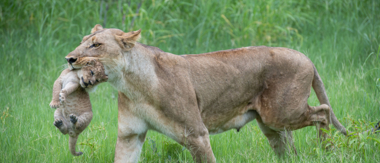Health and Safety
You might have questions about your wellbeing during your visit to one of our sites. Rest assured that we’ve got you covered with the health and safety information you need.
Vaccinations and general medical precautions
Vaccination requirements change from time to time, and some countries require advance inoculations and certified proof thereof. For these reasons, we recommend that you consult your local doctor before your visit. During your visit, ensure that you stay hydrated with bottled water, and protect yourself from the sun. If you are on medication, be sure to bring enough for the duration of your stay.
Malaria and yellow fever
Because the risk of malaria is widespread across Africa, ensure that you consult your doctor or travel clinic at least three months before your visit. It is important that you receive the correct prophylactics, and never miss a dose. There is no risk of yellow fever in Southern Africa, but a yellow fever vaccination certificate is required upon entry into certain African countries. These may be obtained from travel clinics where the yellow fever vaccination is available.
Health facilities at camp
We are confident that all of our recommended safaris and safari lodges are equipped with top-notch facilities. Food preparation is carefully and hygienically handled, and we can vouch for the safety of the purified tap water for drinking. And in the unlikely event of a health emergency, most of the remote lodges have efficient evacuation structures in place.
Safety while viewing game
Seeing wild animals in their natural habitat is a wonderful experience, and it is tempting to get carried away with excitement. However, it is important to remember that you are a visitor in their environment. Never touch, feed or approach wild animals. Do not shout, and do not leave the vehicle under any circumstances. Even though they may seem gentle, wild animals can become threatening at any time.
Safety at camp
Our local staff members are highly trained to handle health and safety incidents. They attend regular refresher courses in first aid and CPR, and communication technology ensures that extra help may be called if needed. Our camps and lodges are unfenced, so it’s important to follow the instructions provided by your safari guide and hosts. They are trained to assist if necessary, but safety begins with your adherence to camp rules and the advice of your guides.
Creepy crawlies
Africa is home to potentially dangerous species including snakes, spiders, scorpions and insects. They generally do not to bother visitors, particularly snakes who are shy and tend to avoid built-up areas. Even so, we advise that you take precautions. Wear trousers, socks and enclosed walking shoes. And while we suggest that you bring your own insect repellent, most lodges and camps have insect proofing – for mosquitoes in particular.
Turn your dreams into plans
Orange-gold sunsets, elephants swimming in the desert, the thrill of a leopard on a hunt. A safari to Africa is more than a holiday; it will change the way you think of the world for life.

Machaba Safaris Blog
Read our blog for updates from the bush and the latest sightings from our camps.
View Blog

